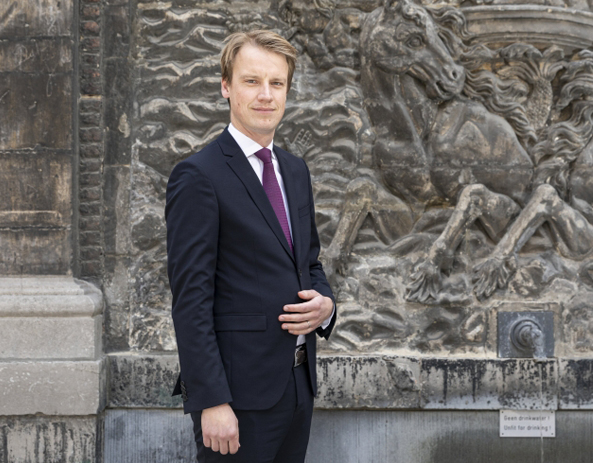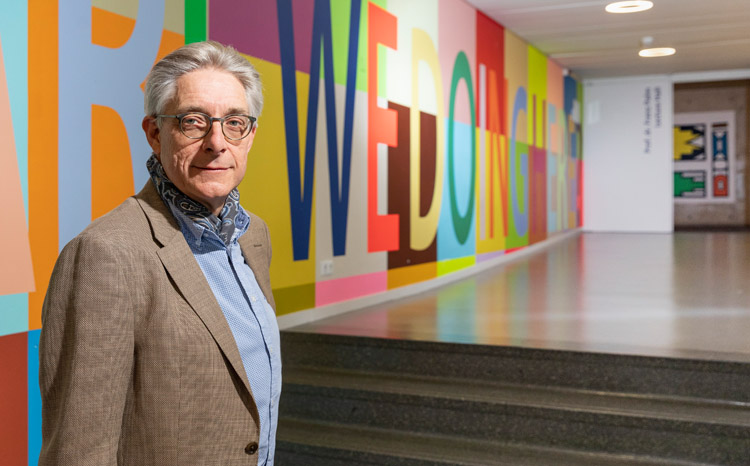
Maastricht, reflecting on Europe
The second-biggest democratic election in the world took place from 23 to 26 May 2019. Across four days, 426 million Europeans could vote for a new European Parliament. What, if anything, will change after these elections? And what exactly is Europe’s role in Brexit, climate change or migration? In this series, seven UM scientists shed light on the European state of affairs.
Professor of Macroeconomics and International Monetary Economics Clemens Kool
Read our stories
- Aalt Willem Heeringa: 'Better less control over more than the other way around'
- Clemens Kool: 'Only through a positive approach will Europe stand strong'
- Milena Pavlova: Taking Europe's temperature
- Patrick Bijsmans: Everyone’s a eurosceptic
- Marc Davidson: High time for a new EU climate policy
- Mathieu Segers on our lack of self-knowledge
- Hylke Dijkstra is disappointed in the EU
Also read how UM positions Maastricht as a meeting place for debate and dialogue and as an expertise centre of knowledge and vision on Europe and European integration.
To Maastricht, Working on Europe
“Better less control over more than the other way around”
“The EU provides us with more and greater protection for everything we hold dear, and that is important in times when countries such as China, Russia and the United States are determined to follow their own paths,” says Aalt Willem Heringa.
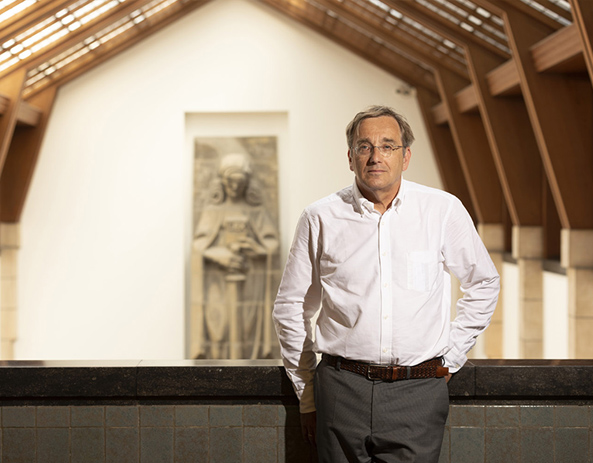
'Only through a positive approach will Europe stand strong'
“We are economically integrated. The biggest gain from this was achieved”, says Clemens Kool. Now, Europe needs to move forward and " focus on shaping its socio-economic policies and political integration.”
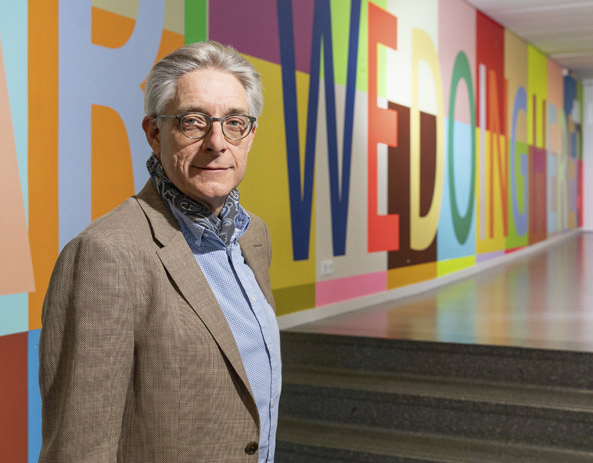
Taking Europe’s temperature
"We’re getting older because our health care is better than ever.” For someone working on ProHealth65+, an EU-funded programme to promote health and prevent risks, Milena Pavlova is quite positive about our demographic crisis.
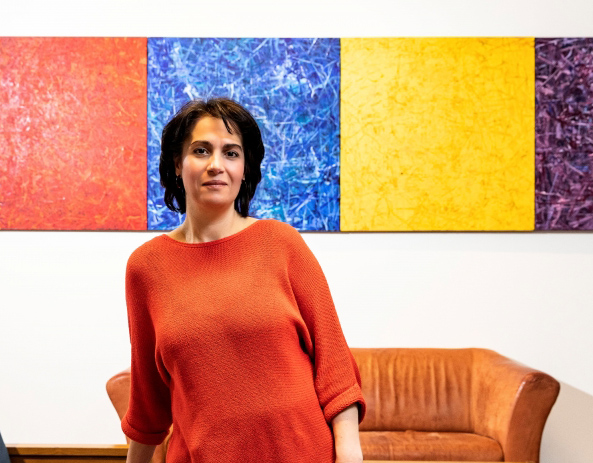
Everyone’s a eurosceptic
The European Union is often criticised for being a ‘show’, far removed from its citizens. The Brussels machinery is widely seen as boring, bureaucratic and complex. “However in reality, in many things the EU is more transparent than a lot of its Member States”, says political scientist Patrick Bijsmans.
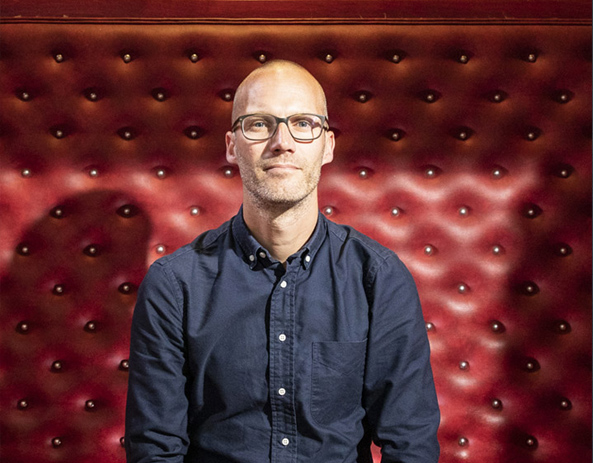
'High time for a new EU climate policy'
Europeans consider climate the most important issue on the European agenda. They're urging governments to take action. New rules and regulations are required, designed and enforced by national authorities, preferably in collaboration with other countires. The EU has the framework for this, says environmental philosopher Marc Davidson.
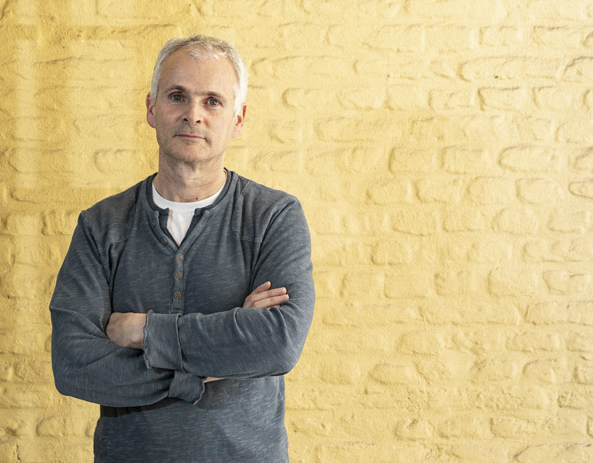
Studio Europa: with élan and Fingerspitzengefühl
What does ‘Europe’ mean to you? How does it make you feel? Maastricht University’s Studio Europa is a place of dialogue for citizens, scholars and policymakers, where you can hear about and be heard on all things European. Academic director Mathieu Segers talks about the importance of gaining a better understanding of ourselves in Europe.
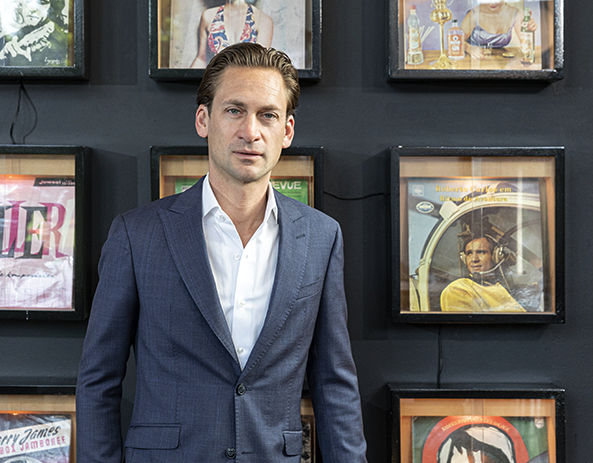
‘Europe should look after itself better’
Media coverage around UM and the elections
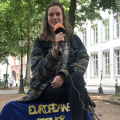
European's Corner (ZDF)
Episode of the ZDF online series 'European's Corner' with UM students Hannah Grijns (University College Maastricht) and Patrick Veugen (Faculty of Arts and Social Sciences).
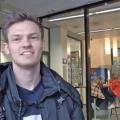
Campus Magazin (Bayerische Rundfunk)
Episode of the programme 'Campus Magazin' with UM students Leon Oelschläger and Talisha Schilder (Faculty of Arts and Social Sciences) about 'Studying Europe in Maastricht'.
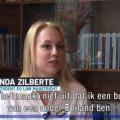
Limburg Centraal (L1)
For their television show 'Limburg Centraal', regional tv channel L1 visited UM and concluded that Europe is a blessing for students. L1 interviewed UM students Linda Zilberte (Law) and Magdalena Weber (University College Maastricht).
Wall Street Journal
Hylke Dijkstra responds to the results of the EU elections in the Wall Street Journal.
